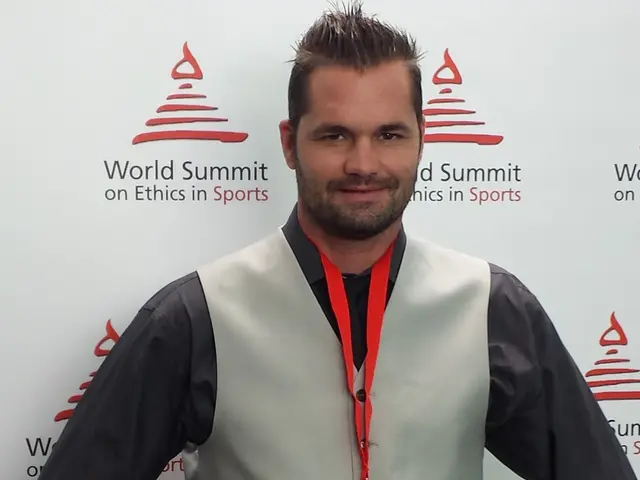Cycling Professional Deals Face Challenges - Premature departures, outmoded transfer processes, and European legal regulations impacting agreements
The Union Cycliste Internationale (UCI), the governing body of cycling, has introduced a new set of rules aimed at managing transfers and registrations for UCI WorldTeams. However, these rules have sparked debate and legal concerns within the cycling community.
The UCI's rules, which came into effect in the summer of 2024, include two defined registration and transfer periods per year, restrictions on certain contract terminations, restrictions on team transfers during contracts, and a prohibition on teams approaching in-contract riders at other teams. These rules, some argue, may be construed as a 'no poach' arrangement between competitors, similar to the unlawful arrangement found in the Diarra case involving FIFA.
One of the main concerns is that the UCI's rules may be considered a restriction 'by object', which is the most serious restriction of competition, as they specifically intend to restrict competition. This could potentially breach competition law and restrict the free movement of workers within the European Union, as was found in the Court of Justice of the European Union's (CJEU) ruling on FIFA's transfer regulations.
Moreover, the new rules lack transparency, particularly in the process for the President of the UCI Arbitral board to approve a rider registering with a new team after unilaterally terminating their previous contract. The rules are vague on what exactly the President of the Arbitral board should consider, without specification as to which laws are to be considered, whether the rider will be able to represent their case, or otherwise. This uncertainty could create problems for riders considering offers from other teams, or for teams making those offers.
The UCI's rules also have implications for contractual stability. Pro cycling has become exceptionally lucrative, with many riders commanding seven-figure salaries. Contractual stability has sporting consequences, and if riders could change teams from one race to the next, it would undermine team competition. On the other hand, the rules do not allow riders to make a proper assessment of the risks of leaving a contract early, as both rider and their new team might face sanctions.
The issues identified by the CJEU are not restricted to football and could apply to other sports, including road cycling. The court in the Diarra case acknowledged that a lawful set of rules to facilitate contractual stability is possible, but expressed concerns about the UCI's current regulatory regime.
Earlier this year, UAE Team Emirates-XRG and Juan Ayuso mutually agreed to terminate his contract early after the rider-team relationship had broken down beyond repair. Remco Evenepoel and Soudal-QuickStep also agreed to terminate his contract early, with rumours of severance pay amounting to around €2 million.
The debate over the UCI's transfer rules has stoked concerns across the sport, with calls for increased regulation on spending in pro cycling. EF Pro Cycling CEO Jonathan Vaughters, for instance, has advocated for stricter financial controls to level the playing field.
As the UCI continues to refine its transfer regulations, it remains to be seen how these rules will impact the sport and the careers of its athletes. The UCI must ensure that its rules are transparent, objective, non-discriminatory, and proportionate, while also prioritising the interests of the riders. Failure to do so could result in legal challenges and further controversy in the world of professional cycling.








